Conference Chair
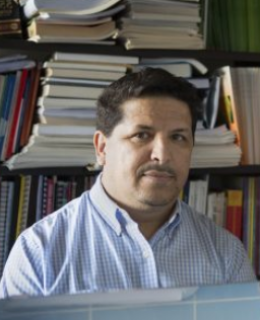
Prof. Habib Zaidi
IEEE Fellow
Geneva University Hospitals, Department of Radiology and Medical Informatics, Switzerland
Areas of Expertise:
Brain imaging, brain networks, technique development
Bio: Habib Zaidi is Chief physicist and head of the PET Instrumentation & Neuroimaging Laboratory at Geneva University Hospital and full Professor at the medical school of Geneva University. He is also a Professor of Medical Physics at the University of Groningen (Netherlands), Adjunct Professor of Medical Physics and Molecular Imaging at the University of Southern Denmark (Denmark), Adjunct Professor of Medical Physics at Shahid Beheshti University visiting Professor at Tehran University of Medical Sciences and Distinguished Professor at Óbuda University (Hungary). He has been elevated to the grade of fellow of the IEEE, AIMBE, AAPM, IOMP, AAIA and the BIR and was elected liaison representative of the International Organization for Medical Physics (IOMP) to the World Health Organization (WHO) and Chair of Subcommittee on Part 1 Examination of the International Medical Physics Certification Board (IMPCB) and the Imaging Physics Committee of the AAPM in addition to being affiliated to several International medical physics and nuclear medicine organisations. His academic accomplishments in the area of quantitative PET imaging have been well recognized by his peers and by the medical imaging community at large since he is a recipient of many awards and distinctions. Prof. Zaidi has been an invited speaker of over 160 keynote lectures and talks at an International level, has authored over 900+ publications, 470 conference proceedings and 42 book chapters and is the editor of four textbooks.
Conference Co-Chair
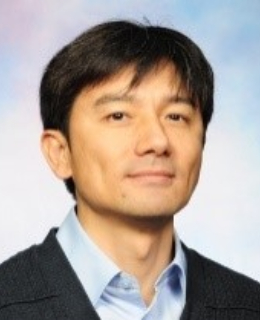
Prof. Seongho Kim
Department of Oncology, School of Medicine, Wayne State University, USA
Areas of Expertise:
Pharmacokinetic/Pharmacodynamic (PK/PD) data analysis; High-throughput data analysis; Disease progressive modeling; Metabolomics
Bio: Dr. Kim's research interests lie in the data analysis and the methodology development for biological and clinical cancer data. He has participated in various research projects, including pattern recognitions, decision support systems, comparative genomics, proteomics, metabolomics, pharmacokinetics/pharmacodynamics, biomarker discovery, high-dimensional data analysis, pathway analysis, clinical trial design and cancer screening.

Prof. Xueli Chen
Director of Biomedical-photonics & Molecular Imaging Lab, School of Life Science and Technology, Xidian University, China
Areas of Expertise:
Multiscale biomedical photonics imaging in innovation, application, and clinical translation
Bio: Xueli Chen, Professor of Xidian University, Director of Biomedical-photonics & Molecular Imaging Lab, Director of Advanced Diagnostic-Therapy Technology and Equipment Key Laboratory of Higher Education Institutions in Shaanxi Province, Director of Xi’an Key Laboratory of Intelligent Sensing and Regulation of trans-Scale Life Information. Chen carried out his undergraduate and doctoral studies at Xidian University of China from 2003 to 2012. Chen received his Bachelor degree in Biomedical Engineering and PhD degree in Pattern Recognition and Intelligent System in 2007 and 2012 respectively. His doctoral dissertation was selected as the Excellent Doctoral Dissertation of Xidian University. Chen joined Xidian University in 2012 as Assistant Professor in School of Life Science and Technology, promoted to Associate Professor in 2014 and Full Professor in 2017. During 2015 to 2017, he worked as a research postdoctoral fellow at Purdue University (Ji-Xin Cheng\'s group) on stimulated Raman scattering microscopy. Chen and his team have been constantly at the most forefront of multiscale biomedical photonics imaging in innovation, application, and clinical translation. Professor Chen has co-led the development of Cerenkov luminescence endoscope and further explored the application in early detection of clinical gastrointestinal tumors. Professor Chen has also developed the stimulated Raman projection tomography technology which can perform the volumetric imaging of single cells in a label-free manner. Professor Chen has served as the member of SPIE, OSA, IEEE (senior member), Vice president of Shaanxi Society of Biomedical Engineering, and as a committee member of the Computational Imaging Committee of the Chinese Society of Optical Engineering, Branch of Biomedical Imaging Technology in China Medicinal Biotech Association, Micro and Nano Committee of the Chinese Society of Optical Engineering, Microscopic Instrument Branch of China Instrument and Control Society, Biomedical Photonics Committee of the Chinese Society of Optics, Medical Image and Device Committee of the China Graphics Society, etc.
Technical Committee Member

Prof. Bin Chen
State Key Laboratory of Multiphase Flow in Power Engineering Energy and Power Engineering School, Xi'an Jiaotong University, China
Areas of Expertise:
Bio-Heat Transfer and Multiphase Flow in Biomedical Engineering, Numerical simulation techniques of multiphase flow, Hydrogen production by biomass gasification in supercritical water

Prof. Jens Haueisen
Institute of Biomedical Engineering and Informatics, Technische Universität Ilmenau, Germany
Areas of Expertise:
Investigation of active and passive bioelectric and biomagnetic phenomena, Measurement, analysis, forward and inverse modeling of bioelectric and biomagnetic data, Numerical computation of bioelectric and biomagnetic fields, Methods for validation and verification in bioelectric and biomagnetic phenomena, Techniques for electric and magnetic stimulation of the brain, Neuro-ophthalmology

Prof. Jingwei Xie
Department of Surgery-Transplant, University of Nebraska Medical Center, USA
Areas of Expertise:
synthesis, surface modification, self-assembly of materials at nanometer scale to address problems in the field of tissue engineering, regenerative medicine and drug/gene delivery
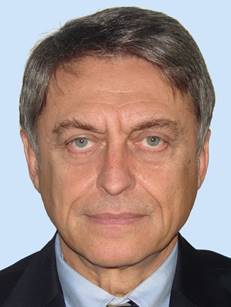
Prof. Boris Gramatikov
The Wilmer Eye Institute
Johns Hopkins University School of Medicine, USA
Fields:
Retinal birefringence scanning, eye tracking, automated focus detection, fixation stability

Prof. Bin Liu
ACM&CCF Senior Member
International School of Information Science & Engineering (DUT-RUISE), Dalian University of Technology, China
Areas of Expertise:
Computer-Assisted Preoperative Planning and Simulation, Medical Image Processing and 3-D Reconstruction, Computer Vision and Graphics

Dr Alexandre G. de Brevern
French National Institute of Health and Medical Research, France
Areas of Expertise:
Molecular modelling, molecular dynamics, protein docking

Prof. Jyh-Cheng Chen
Department of Biomedical Imaging and Radiological Sciences, National Yang Ming Chiao Tung University, China
Areas of Expertise:
Imaging, PET, SPECT, Computed Tomography, PET Imaging

Prof. Ming Chen
Department of Bioinformatics, College of Life Sciences, Zhejiang University, China
Areas of Expertise:
Omics big data integration and mining, Plant non-coding RNAs, Systems biology and integrated network modelling, Algorithm development & Artificial intelligence (Precision medicine)
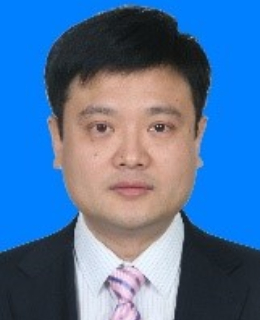
Prof. Yanen Wang
School of Mechanical Engineering, Northwestern Polytechnical University, China
Areas of Expertise:
Biomechanical Engineering, Computational Biomechanics, Tissue Engineering, Biomaterials, Tissue Mechanics, Biomedical Modeling

William Cho
Department of Clinical Oncology, China
Areas of Expertise:
Cancer Studies to Discover Biomarkers for Cancer Diagnosis, Treatment Prediction and Prognostication.

Prof. Gema Prats Boluda
Polytechnic University of Valencia, Spain
Areas of Expertise:
Biomedical Engineering, specifically in the development of non-invasive systems of ad-doc capture and instrumentation of bioelectric signals and their processing, as well as the development of prediction systems and aid in diagnosis and decision making

Prof. Yangchao Chen
School of Biomedical Sciences, The Chinese University of Hong Kong, China
Areas of Expertise:
Epigenetics in cancer, histone modification particularly methylation, long and short non-coding RNAs, development of novel therapeutics for liver and pancreatic cancer
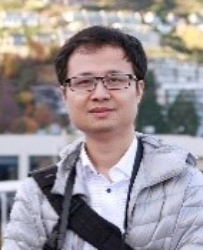
Binh Phu NGUYEN
School of Mathematics and Statistics, Victoria University of Wellington, New Zealand
Areas of Expertise:
Health data sciences and informatics, Deep learning, Biomedical image analysis, Bioinformatics, Drug discovery

Prof. Guang-Zhong Wang
Shanghai Institute of Nutrition and Health, Chinese Academy of Sciences, China
Areas of Expertise:
Our group is interested in how to integrate the analyses and explanation of brain-scale datasets to gain a global level of understanding how the brain works. In addition, we are also interested in the transcriptome dynamics of early brain development and the general design principles of the transcriptional and translational system.

Prof. Lin Zhang
School of Information and Control Engineering, China University of Mining and Technology, China
Areas of Expertise:
RNA methylation data processing, signature gene identification, multi-omics big data integration, medical imaging, medical big data

Assist. Prof. Faez Iqbal Khan
Department of Biological Sciences at Xi'an Jiaotong-Liverpool University, China
Areas of Expertise:
Protein engineering, Protein folding, drug design, and Protein dynamics